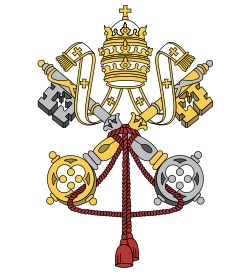Pope Leo XIV celebrated Mass in St. Peter’s Square on Sunday as the Church marked the Jubilee of Catechists.
In his homily, the Pope reflected on the day’s Gospel reading (Lk 16:19-31), which recounts the story of the rich man and Lazarus, noting that this was the same Gospel read during the Jubilee of Catechists during the Holy Year of Mercy in 2016.
Through this Gospel passage, he said, Jesus shows us how God views the world, as one man lies dying with dogs licking his wounds while another man gorges himself in elegant clothes just on the other side of the door.
“At the doorstep of today’s opulence stands the misery of entire peoples, ravaged by war and exploitation,” he said. “Through the centuries, nothing seems to have changed.”
Even as many Lazaruses die while the rich ignore what is before their eyes, the Gospel assures us that God will do justice to both, putting an end to the poor man’s sufferings and to the rich man’s revelry.
After the rich man dies, he sees Lazarus at Abraham’s side and begs God to warn his brothers of his fate. Yet Abraham, said Jesus, tells him that those who are alive have Moses and the prophets to warn them.
“Listening to Moses and the Prophets means remembering God’s commandments and promises, whose providence never abandons anyone,” said the Pope. “The Gospel announces to us that everyone’s life can change because Christ rose from the dead.”
Jesus’ Resurrection, he added, is the truth which saves us and which must be proclaimed by the Church through her catechists.
By learning to love this truth, we come to understand the Gospel as our hearts are transformed and opened to God and our neighbor, said the Pope.
Pope Leo then reflected on the meaning of the word “catechist,” which he said comes from the Greek word meaning “to teach aloud, to make resound.”
A catechist, he said, is a person of the word that they proclaim with their life, whether they are our parents or a minister on behalf of the Church.
“We have all been taught to believe through the witness of those who believed before us,” he said. “From childhood, adolescence, youth, adulthood, and even old age, catechists accompany us in our faith, sharing in this lifelong journey.”
Catechists and everyone who teaches others by their example, said the Pope, cooperate in the Church’s pastoral work by listening and serving “the desire for justice and truth that dwells in the human conscience.”
In conclusion, Pope Leo XIV invited catechists to be filled with faith so that they may help others along their journey of faith.
As St. Augustine told the Deacon Deogratias, “Explain everything in such a way that the one who listens to you, by listening, may believe; by believing, may hope; and by hoping, may love.


